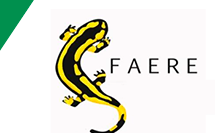Using original data from French communities, this paper investigates the effects of the Pay As You Throw (PAYT) mechanism on the demand for Municipal Solid Waste (MSW) services by differentiating the effect of the non-zero marginal price from the effect of the cost information. Empirical strategy allows for testing of the preventive and substitution effects of PAYT on MSW quantity and management costs. We find strong evidence in favor of both the preventive and substitution effects of the PAYT and its cost effectiveness. Compared to non-PAYT communities, communities with PAYT have a lower quantity of total waste collected, lower quantity of unsorted waste for disposal and higher quantity of separated waste for recycling. The cost information supports the preventive effect whilst the non-zero marginal price supports the substitution effect. The per capita waste disposal fee in PAYT communities is on average 20 euros lower. Furthermore, results indicate that the schema of the PAYT does matter: the more refined the marginal pricing of waste is, the greater the individual response. The effectiveness of the weight-based schema is greater than the pickup-based schema, which is greater than the volume-based schema.
Programme > Papiers par auteur > Gnonlonfin H. AmandineHow much does my garbage really cost? Evidence from French communities
1 : Laboratoire d'économie appliquée au développement
(Léad)
-
Site web UFR Sciences économiques- Université de Toulon
Campus Porte d'Italie - Toulon 70, avenue Roger Devoucoux 83000 Toulon -
France
|




